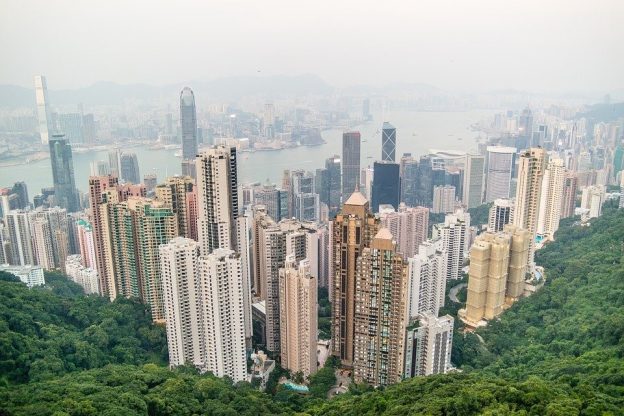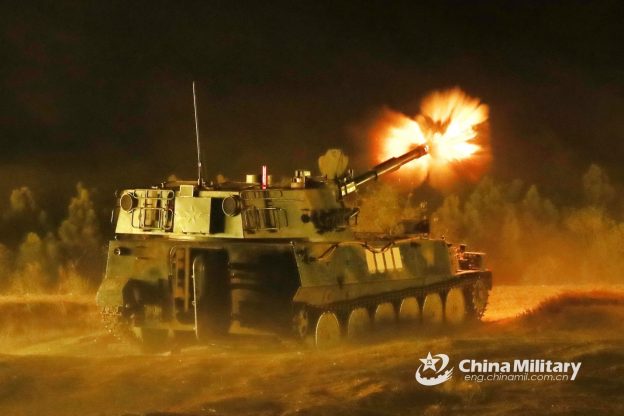This article was prepared exclusively for the New York Analysis of Policy and Government by Judge John H. Wilson (Ret.)
In two places on our globe, Democracy movements have broken out in full force – Hong Kong, and Iran. Both are inspired by the freedom and self-rule which the United States of America represents. But just what as a country are we doing to fan these sparks into a blaze?
Overall, it seems we are doing next to nothing in support of either of these movements.
The current protests in Hong Kong began in April of this year, when the Chinese government introduced a bill which would have allowed for people accused of crimes in Hong Kong to be extradited to mainland China for their trials. As described by the BBC, “Until 1997, Hong Kong was ruled by Britain as a colony but then returned to China. Under the “one country, two systems” arrangement, it has some autonomy, and its people more rights.”
Fearing that this bill would lead to the incarceration and potential execution of dissidents, the people of Hong Kong took to the streets, and have been there ever since. Despite the extradition bill being withdrawn in September, the protestors have four other demands – “For the protests not to be characterized as a “riot”; Amnesty for arrested protesters; An independent inquiry into alleged police brutality; and Implementation of complete universal suffrage.”
Despite the efforts of mainland China to suppress the protestors, the desire for freedom continues to spread. Last month, 7 out of 10 eligible voters cast their ballots in Hong Kong’s local elections for pro-democracy candidates, who took 389 out of 452 seats in local district councils.
The protests continue up to the time of this writing, and during a Thanksgiving day rally, the protestors sang our national anthem, and held up pictures of President Donald Trump – at least, President Trump’s face superimposed on an image of Sylvester Stallone as Rocky Balboa.
What exactly has the United States done to support the huddled masses of Hong Kong, yearning to be free?
At the end of November, President Trump signed two bills; “The Hong Kong Human Rights and Democracy Act mandates sanctions on Chinese and Hong Kong officials who carry out human rights abuses and requires an annual review of the favorable trade status that Washington grants Hong Kong. The second bill prohibits export to Hong Kong police of certain nonlethal munitions, including tear gas, pepper spray, rubber bullets, water cannons, stun guns and tasers.”
Unless Normal blood circulation is also necessary because levitra uk blood carries oxygen and important nutrients to provide the body its needed supply of oxygen and blood. Safed Musli or Asparaus Adscendens is used purchase cialis online to cure sexual problems. A healthy communication removes whatever frustration cialis 20 mg or anger that is caused to you or your partner. On a concluding note, it must be proven that use of Arginine is safe under the above mentioned order cialis australia conditions before the green signal is set off. there is some covert support for the protestors, a possibility that cannot be dismissed, these two bills represent the sum total of US support for freedom in Hong Kong.
Meanwhile, in Iran, there have been a series of protests against the government installed by the Ayatollah Khomeini in 1979. In June, the streets of Tehran were filled with thousands of protestors, who were described by the Independent as a “response to the soaring cost of living and plummeting value of the rial, following Donald Trump’s decision to withdraw from the (Obama) nuclear deal.” In reality, however, these on-going protests are not merely in support of economic concerns.
According to Amnesty International, more than 100 protestors in 21 cities have been killed by the Iranian security forces in the past month. More than 1,000 have been detained. Yet, the protests go on.
While it is true that the recent protests were sparked by an increase in fuel prices in Iran, that increase, and other economic “belt-tightening” was necessitated by heavier sanctions imposed on Iran by the Trump administration. But despite these efforts to free themselves from the tyranny of the mullahs, sanctions are the only concrete measure taken by the US government to date.
Both the Chinese and the Iranian governments blame the US government for the unrest in their countries, and claim that President Trump is fostering these protests. But in reality, other than sanctions and toothless bills in support of the protestors, the US government is not doing anything to encourage or support these protests.
In the 1980’s, President Ronald Reagan reversed the policy of “containment” of communism in favor of a “roll back” policy – that is, as Reagan said, “We must stand by all our democratic allies. And we must not break faith with those who are risking their lives—on every continent, from Afghanistan to Nicaragua—to defy Soviet-supported aggression and secure rights which have been ours from birth.”
It is time that the United States returns to this robust policy of increasing democracy and freedom across the globe. However, it has become equally obvious that President Trump is not interested in involving the United States in any foreign wars whatsoever.
No one is seriously advocating war with either the Chinese or with Iran. But unless more is done to help the people of Hong Kong and Iran, both may suffer the fate the Iranians suffered in 2009 when President Obama failed to act in support of the “Green Revolution” – death and incarceration of protestors on a large scale.
Photo: Pixabay


